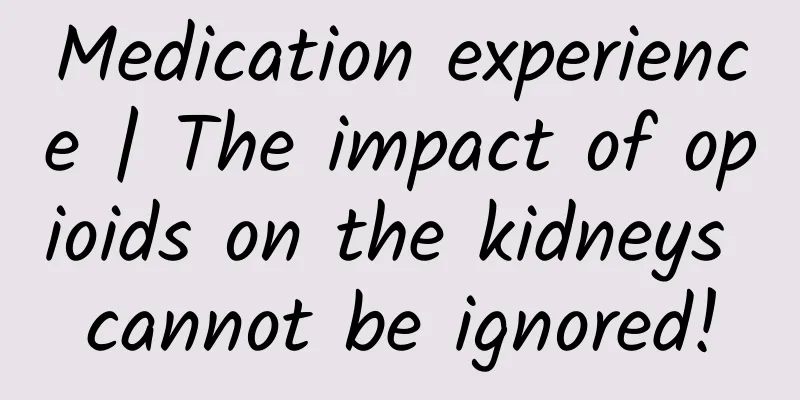Misconceptions about pain

|
Myth 1: Pain is not a disease, it is just a symptom Experts say: Wrong! Pain, especially chronic pain, is a disease in itself and must be treated! For a long time, people have mistakenly believed that body pain is a symptom of other diseases, and that as long as the disease is cured, the pain will disappear. In fact, this is not the case at all! After decades of research, it has been confirmed that chronic pain is a disease in itself. The lesion site is in the nervous system. If the root cause is not found, the pain may not be relieved! For example, trigeminal neuralgia and postherpetic neuralgia are diseases in themselves. If the pain is cured, the disease will be cured. Myth 2: If it hurts, just bear with it Experts say: There is really no need to endure the pain any longer, go see a doctor! “It takes a hundred days to heal a broken bone, so it’s normal to feel pain for more than a hundred days!” “It’s normal to feel pain after surgery!” Such notions are unacceptable! Don't bear the pain, take active treatment measures. If you keep delaying to see a doctor, it is very likely that acute pain will turn into chronic pain, or even never heal. If you actively treat it, there is a great chance of recovery. At present, 95% of chronic pain can get satisfactory results. Myth 3: Which department should I go to for the pain? Experts say: Wrong! Many chronic and intractable pains require treatment with a pain specialist. If you have lower back pain, you should see an orthopedic surgeon; if you have mouth pain, you should see a dentist; if you have a headache, you should see a neurologist or a neurosurgeon... We should change the idea that you should see the department that deals with the pain in the part of your body! For example, if an elderly person has occasional pain due to lumbar disc herniation, but it is not severe enough to require surgery, what should he do? In this case, he can go to the pain department for a checkup! If you suddenly feel pain here and there, should you go to a specialist clinic or a pain department? Here are two principles: First, for acute pain caused by primary diseases, you should go to the corresponding department. For example, if you have sudden angina, you should go to the cardiology department, and if you have sudden acute abdomen, you should go to the general surgery department. Of course, in very urgent cases, you can go directly to the emergency department! Second, chronic and intractable pain, including pain for which the cause has not been found or the cause has been found but cannot be cured, should be treated by the pain department. Specifically, the following pain-related diseases can be treated by the pain department: 1. Acute pain includes acute injury pain of soft tissue and joints, postoperative pain, obstetric pain, herpes zoster pain, gout, etc. 2. Chronic pain This is the main diagnosis and treatment scope of the pain department, including: chronic neuropathic pain, such as trigeminal neuralgia; chronic musculoskeletal system diseases, such as cervical spondylosis, lumbar disc herniation, chronic low back pain, heel pain, frozen shoulder, etc.; chronic postoperative pain, such as back surgery pain syndrome, phantom limb pain, post-thoracotomy pain syndrome, etc.; other chronic painful diseases, such as headache, chronic pelvic pain, etc. 3. Cancer pain includes pain from advanced tumors, pain related to tumor treatment, pain from benign tumors, etc. 4. Special pain diseases include osteoporosis, thromboangiitis obliterans, diabetic neuropathy, intractable angina pectoris, idiopathic chest and abdominal pain, etc. 5. Related subject diseases include early retinal vascular embolism, sudden deafness, vasospastic diseases, hemifacial spasm, allergic rhinitis, intractable hiccups, peripheral vascular diseases, insomnia, etc. Myth 4: Treating pain means taking painkillers Experts say: Wrong! If you come to the pain department, you will know how many treatment methods doctors have! "To relieve pain, most of the time you just need to take painkillers, massage, or traction, right?" These are all traditional methods. Now the skill index of pain physicians has improved by several levels! In the pain department, doctors will make clear diagnoses for various types of pain that are not effectively treated by clinically related departments, analyze the causes of pain and the physiological and pathological causes, and provide patients with minimally invasive interventional surgical treatments such as drug treatment, nerve blocks, various types of nerve modulation and nerve destruction treatment, and psychological treatment. Especially for intractable pain that is not responsive to drug therapy, various unique technologies will be used for comprehensive treatment to effectively relieve symptoms and improve quality of life. Myth 5: The pain will go away after treatment Experts say: Wrong! The pain may come back, and persistence is the key to treatment! Chronic pain is a chronic disease. Like high blood pressure and diabetes, it has periods of onset and remission. The condition may recur repeatedly, and some even require repeated treatment and lifelong medication. For such diseases, the purpose of treatment is not to completely eliminate pain, but to relieve symptoms, prevent onset and complications, and improve function. |
<<: Don't neglect the elderly's nighttime health care
Recommend
Once injured, it is difficult to heal on its own! The most worrying thing about the meniscus is that you use it incorrectly and it will be scrapped in advance! A must-read for protecting your knees
How important are knees to us? Everyone knows It ...
At what age do girls' breasts develop?
I believe we all know that for women, breasts are...
Why do I have lower abdominal pain during intercourse?
Many women will experience abdominal pain while e...
What are the dietary treatments for lobular hyperplasia?
Lobular breast hyperplasia is a problem for many ...
What is the cause of bleeding during menstruation?
What is the reason for bleeding during intercours...
How long does it take for hcg to be metabolized?
Many people find that the hcg level in their bloo...
What causes vaginitis?
There are many types of vaginitis, and there are ...
Can you take Zhibai Dihuang Wan during menopause?
Zhibai Dihuang Wan is mainly composed of 8 Chines...
How to make your skin white during confinement
During pregnancy, in order for the fetus to grow ...
Does a woman with fluid flowing from her vagina mean she is a virgin?
If you tease a woman in a married life, when her ...
There are small white spots on the nipples
Breastfeeding mothers will encounter various prob...
Biochemical pregnancy hcg value range
What are the changes in hcg in ectopic pregnancy?...
Family members, heating up fruits in winter is really amazing!
In the cold winter, people like to eat hot food t...









